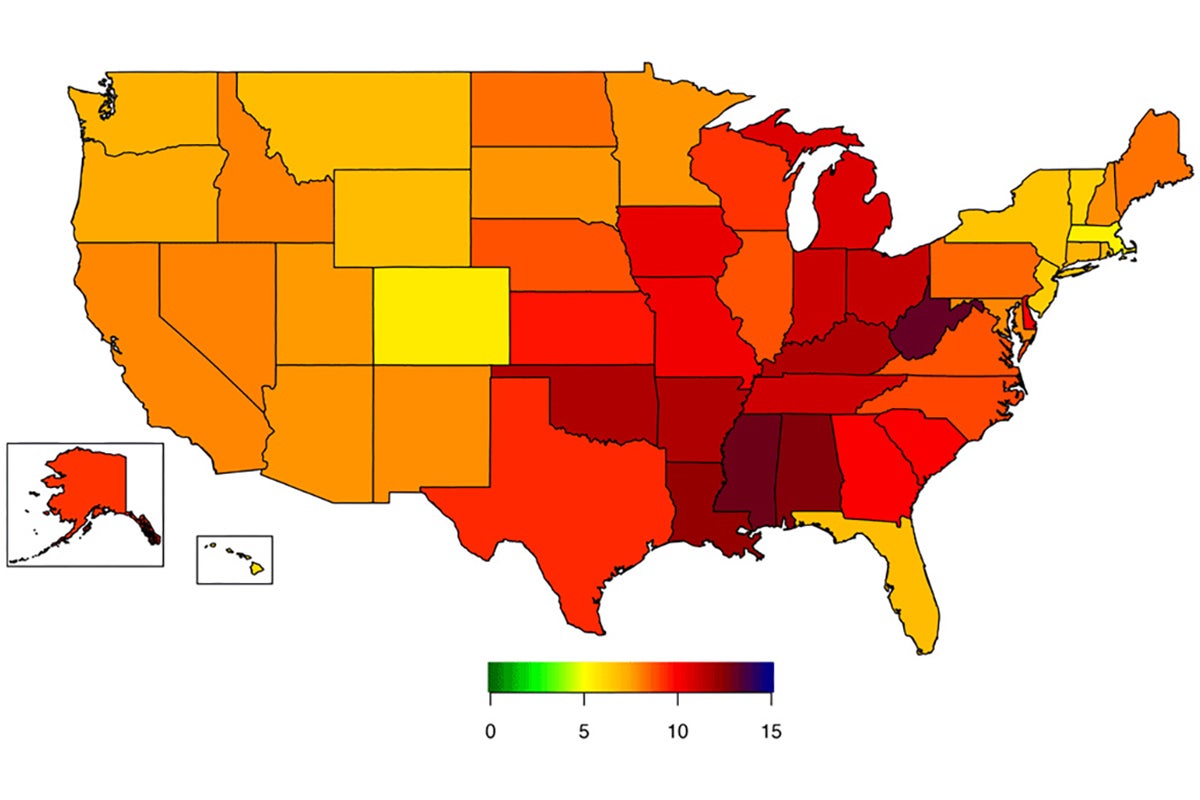Related Topics
‘Linear urban forest’ project aims to mitigate heat, improve health in cities
Researchers designed a “linear urban forest” and plan to quantify its climate- and health-related benefits for U.S. cities, using Springfield, Mass., as a pilot.

A molecular dive into how cells sense nutrients
Krystle Kalafut, PhD ’24, studies the liver’s response to insulin, revealing potential mechanisms involved in obesity and diabetes.

Avoiding hidden sources of added sugars
To reduce the amount of sugar in their diets, people should pay attention to unexpected sources of added sugar such as sweetened beverages, cereals, and yogurts, according to experts.

Prevention most effective focus for reducing obesity rates
This dramatic rise in obesity since the 1980s parallels the increased accessibility of cheap, unhealthy foods at all hours of the day, which has created an environment where it is very easy to consume excess calories.

Weight loss drug costs could go 'out of control,' says expert
Access to new weight loss drugs is in the hands of drugs companies, pharmacy benefit managers, and health insurers—leaving experts wondering about the future of health costs and outcomes among patients with obesity.

Mediterranean diet high in polyphenols linked with slower biological aging
Eating a Mediterranean or Green Mediterranean diet rich in polyphenols is associated with slower biological aging, according to a new study co-authored by researchers at Harvard Chan School.
Sara Bleich, Christian Happi elected to National Academy of Medicine
Two faculty members from Harvard Chan School—Sara Bleich and Christian Happi—have been elected to the National Academy of Medicine.

Improving accuracy of state-level obesity estimates to better inform prevention, treatment
A novel statistical method developed by Zachary Ward, assistant professor of health decision science at Harvard T.H. Chan School of Public Health, and colleagues gets around biases in self-reporting.

Exploring rising cancer rates in younger people
Cancer rates are increasing in people below the age of 50, a trend that could be driven by obesity and other factors, according to experts.

Lifestyle changes may be driving higher cancer rates in people under 50
Cancers are on the rise among people younger than 50, and experts think that lifestyle changes may have something to do with it—although data is not firm.
